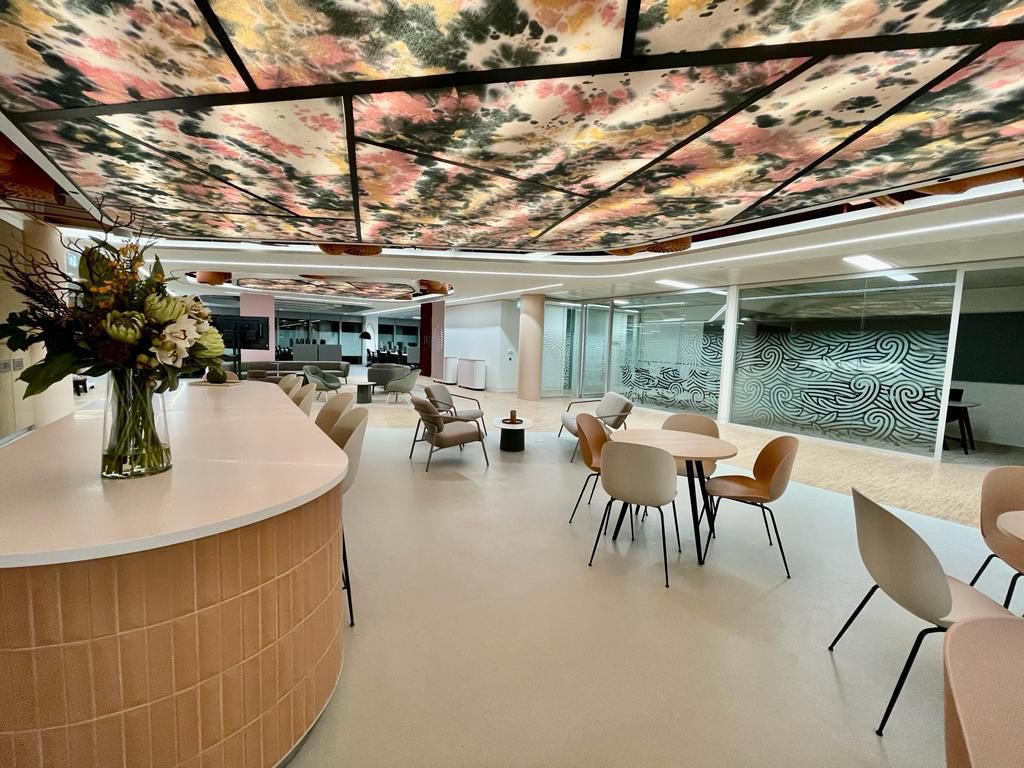Slip-Resistant Flooring for Office Spaces

Safety First: Slip-Resistant Flooring for Office Spaces
Ensuring a safe working environment is a top priority for any business, and one key aspect of workplace safety is the choice of flooring. Slip-resistant flooring is essential in preventing accidents, reducing liability, and maintaining a secure, productive office space. Here’s why slip-resistant flooring is crucial for office environments and some top options to consider.
Why Slip-Resistant Flooring Matters
- Preventing Accidents
- Safety Hazards: Slips, trips, and falls are common workplace accidents that can lead to injuries. Slip-resistant flooring reduces these risks by providing better traction.
- Employee Well-Being: A safe working environment boosts employee morale and well-being, as they feel secure and cared for.
- Reducing Liability
- Legal Implications: Businesses are legally obligated to ensure a safe workplace. Slip-resistant flooring helps meet health and safety regulations, reducing the risk of costly legal issues.
- Insurance Premiums: Fewer accidents can lead to lower insurance premiums, saving the business money in the long run.
- Maintaining Productivity
- Minimising Downtime: Injuries from slips and falls can result in employee absences, disrupting workflow and productivity. Safe flooring helps keep operations running smoothly.
- Enhanced Focus: Employees can concentrate better on their tasks without worrying about potential hazards underfoot.

Top Slip-Resistant Flooring Options
- Vinyl Flooring
- Pros:
- Available in slip-resistant varieties.
- Durable and easy to clean.
- Cost-effective and comes in various designs and textures.
- Cons:
- Can be prone to scratches and dents over time.
- Needs to be installed properly to ensure maximum slip resistance.
- Pros:
- Rubber Flooring
- Pros:
- Excellent slip resistance and shock absorption.
- Highly durable and resilient.
- Comfortable underfoot, reducing fatigue for employees.
- Cons:
- Limited aesthetic options compared to other materials.
- Can be more expensive initially.
- Pros:
- Carpet Tiles
- Pros:
- Naturally slip-resistant due to textured surface.
- Provides noise reduction and comfort.
- Easy to replace individual tiles if damaged.
- Cons:
- Requires regular cleaning to maintain appearance and hygiene.
- May not be as durable in very high-traffic areas.
- Pros:
- Ceramic and Porcelain Tiles
- Pros:
- Extremely durable and available in slip-resistant finishes.
- Variety of designs and colours to match office décor.
- Easy to clean and maintain.
- Cons:
- Hard surface can be uncomfortable for prolonged standing.
- Can be slippery when wet, requiring textured or treated surfaces.
- Pros:
- Laminate Flooring
- Pros:
- Available with slip-resistant surfaces.
- Cost-effective and mimics the look of hardwood or stone.
- Easy to clean and maintain.
- Cons:
- Can be damaged by moisture if not sealed properly.
- Not as resilient to heavy impacts or high traffic.
- Pros:
- Cork Flooring
- Pros:
- Naturally slip-resistant and comfortable underfoot.
- Eco-friendly and renewable material.
- Provides good sound and thermal insulation.
- Cons:
- Can be prone to scratches and dents.
- Requires regular sealing to protect against moisture.
- Pros:

Tips for Maintaining Slip-Resistant Flooring
- Regular Cleaning: Keep floors clean to maintain their slip-resistant properties. Remove dust, dirt, and spills promptly.
- Use Mats and Rugs: Place slip-resistant mats or rugs in high-traffic areas, entrances, and areas prone to wetness, such as break rooms or near water coolers.
- Proper Installation: Ensure flooring is installed correctly by professionals to maximise safety and longevity.
- Routine Inspections: Regularly inspect floors for wear and tear. Replace or repair damaged areas promptly to maintain a safe environment.
Conclusion
Investing in slip-resistant flooring is a proactive step toward creating a safer, more productive office space. By choosing the right materials and maintaining them properly, businesses can reduce the risk of accidents, protect their employees, and enhance overall workplace safety. Whether you opt for vinyl, rubber, carpet tiles, ceramic, laminate, or cork, prioritising slip resistance will benefit your office in the long run.